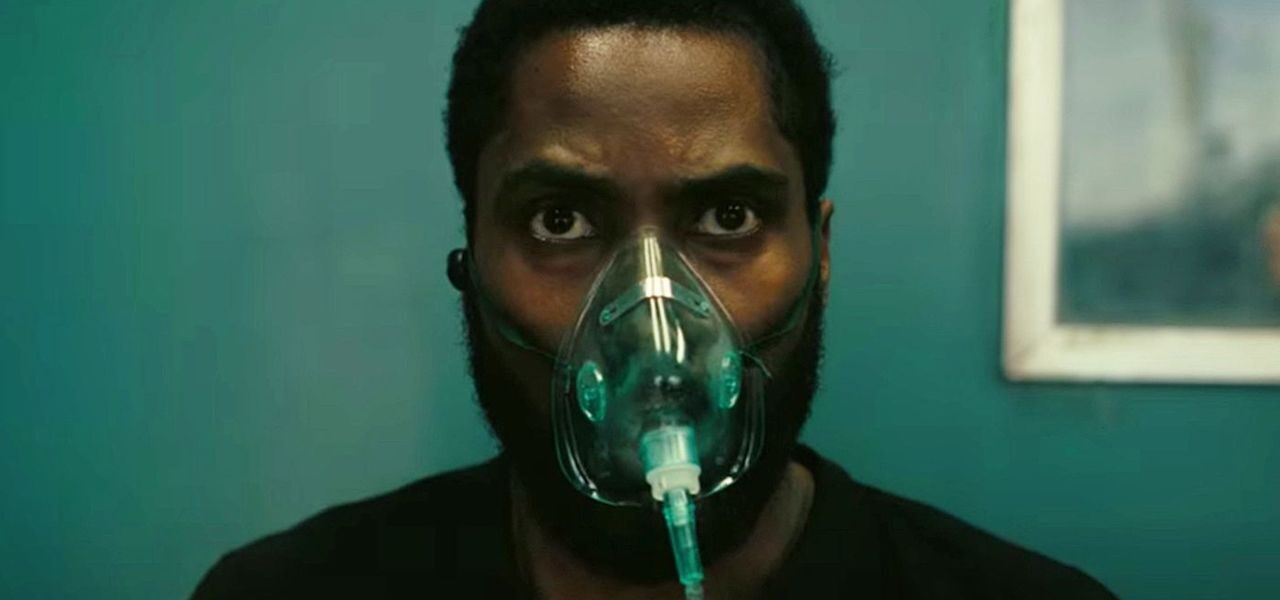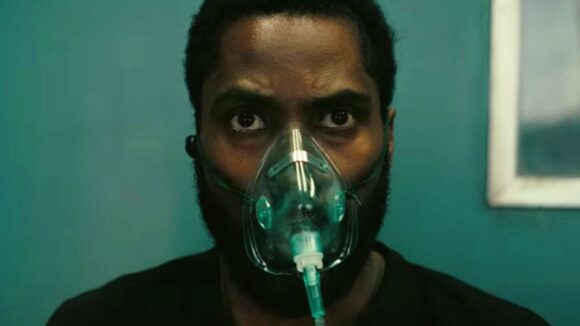

Top Filmmakers Call On Congress To Rescue Ailing Theaters (UPDATED)
We all know the threat the pandemic poses to cinemas. Lobbyists have been saying it. Christopher Nolan has been saying it. At least one studio has exploited it. But only now have filmmakers made a concerted, united appeal to Congress to save the America’s theatrical sector.
Dozens of high-profile directors, producers, and other industry figures have joined the National Association of Theatre Owners, the Directors Guild of America, and the Motion Picture Association in submitting a letter to House and Senate leaders, asking for urgent relief for beleaguered cinemas. Signatories include Nolan, James Cameron, Sofia Coppola, Clint Eastwood, Wes Anderson, Barry Jenkins, and Richard Linklater.
Curiously, no full-time animation directors signed the letter. We don’t know why they weren’t invited to be a part of this letter, especially considering that animation plays a central role in the theatrical moviegoing experience and some of the highest-grossing movies are animated films. The only signators who have directed animation are those who come from the world of live-action (Wes Anderson, Richard Linklater) or former animation directors who now make live-action films (Rob Letterman).
“The moviegoing experience is central to American life,” the letter reads. “Theaters are great unifiers where our nation’s most talented storytellers showcase their cinematic accomplishments.”
Among other sobering numbers, the letter provides an estimate that 69% of small and mid-sized movie theater companies will file for bankruptcy or go out of business if the status quo continues, costing 66% of the sector’s 150,000 jobs. Some cinemas have already permanently shuttered since March, including New York City’s Landmark at 57 West.
The signatories urge Capitol Hill to work on a bipartisan basis to provide support, whether by redirecting unallocated funds from the CARES Act to struggling theaters or enacting new proposals like the RESTART act. Otherwise, “theaters may not survive the impact of the pandemic.”
As many as three quarters of theaters in the U.S. have reopened, albeit with reduced capacity. Yet with few films on the short-term release schedule — and little marketing behind those that are playing — they are struggling to do business. Some are reportedly remaining shut, despite being authorized to open, as they see no commercial sense in reopening now.
Warner Bros. tested the waters last month by releasing Nolan’s Tenet (image at top) domestically. The box-office data, which the studio was initially hesitant to divulge, shows that the film had grossed $41.2 million by last weekend, its fourth.
Meanwhile, Warner Bros. pushed Wonder Woman 1984 back from October 2 to December 25, which says all we need to know about how it views Tenet’s performance. Earlier today, MGM delayed the release of the next James Bond film, No Time to Die, from November 20 to April 2, 2021, while Universal pushed back Fast & Furious installment F9 from April 2 to May 28, 2021.
UPDATE (Oct. 3, 10pm ET): Following MGM’s decision to delay the release of the next James Bond film, the second-largest U.S. theater chain, Regal Cinemas, announced today that it would close all of its locations for an unspecified period of time, potentially until 2021. This puts a big question mark on upcoming theatrical releases, including animated films like Soul, The Croods: A New Age, and Connected. Regal’s parent company Cineworld is also shuttering all of its U.K. cinemas, where it is the largest cinema operator. According to Variety, Cineworld is writing a letter to U.K. prime minister Boris Johnson and culture secretary Oliver Dowden to inform them that the current exhibition market is “unviable.”
Read the letter in full below:
Dear Leader McConnell, Speaker Pelosi, Leader Schumer, and Leader McCarthy:
Thank you for your leadership at this challenging time for our country. As you consider forthcoming COVID-19 relief legislation, we ask you to prioritize assistance for the hardest-hit industries, like our country’s beloved movie theaters.
No doubt you are hearing from many, many businesses that need relief. Movie theaters are in dire straits, and we urge you to redirect unallocated funds from the CARES Act to proposals that help businesses that have suffered the steepest revenue drops due to the pandemic, or to enact new proposals such as the RESTART Act (S. 3814/H.R. 7481). Absent a solution designed for their circumstances, theaters may not survive the impact of the pandemic.
The pandemic has been a devastating financial blow to cinemas. 93% of movie theater companies had over 75% in losses in the second quarter of 2020. If the status quo continues, 69% of small and mid-sized movie theater companies will be forced to file for bankruptcy or to close permanently, and 66% of theater jobs will be lost. Our country cannot afford to lose the social, economic, and cultural value that theaters provide.
The moviegoing experience is central to American life. 268 million people in North America went to the movies last year to laugh, cry, dream, and be moved together. Theaters are great unifiers where our nation’s most talented storytellers showcase their cinematic accomplishments. Every aspiring filmmaker, actor, and producer dreams of bringing their art to the silver screen, an irreplaceable experience that represents the pinnacle of filmmaking achievement.
As well as their critical cultural impact, theaters are economic force multipliers. In addition to the 150,000 employees working in cinemas nationwide, the industry supports millions of jobs in movie production and distribution, and countless others in surrounding restaurants and retailers that rely on theaters for foot traffic. Movie theaters are also leaders in employing underrepresented groups, including people with disabilities, senior citizens, and first-time job holders. Cinemas are an essential industry that represent the best that American talent and creativity have to offer. But now we fear for their future.
Theaters need specific relief targeted to their circumstances. We urge you to come together on a bipartisan solution that provides this relief, by reallocating unspent funds from the CARES Act toward programs designed for industries like movie theaters, or by enacting new proposals such as the RESTART Act. These solutions would fulfill Congress’s intent in helping severely distressed sectors of the economy and ensure that our resources are focused on the industries that need them the most.
Please fight for our country’s beloved and essential cinemas by including relief for them in any forthcoming COVID-19 legislation. Thank you for your leadership and for considering this request.
Sincerely,
John Fithian, President & CEO, NATO
Russ Hollander, National Executive Director, DGA
Charles Rivkin, Chairman & CEO, MPA
Thomas Schlamme, President, DGA
Adewale Akinnuoye-Agbaje
Agustin Almodovar
Pedro Almodovar
Wes Anderson
Judd Apatow
Jon Avnet
Sean Baker
Noah Baumbach
Michael Bay
Susanne Bier
Barbara Broccoli
James Cameron
Antonio Campos
Damien Chazelle
Jon M. Chu
Sofia Coppola
Alfonso Cuarón
Lee Daniels
Dean Devlin
Clint Eastwood
Andrew Erwin
Jon Erwin
Paul Feig
Shana Feste
Scott Frank
Cary Joji Fukunaga
Greta Gerwig
Evan Goldberg
Paul Greengrass
Leslie Greif
Luca Guadagnino
Catherine Hardwicke
Alma Har’el
Albert Hughes
Allen Hughes
Alejandro Gonzalez Iñárritu
Barry Jenkins
Patty Jenkins
Rian Johnson
Miranda July
Nicole Kassell
Jon Landau
Francis Lawrence
Mimi Leder
Ang Lee
Rob Letterman
Shawn Levy
Richard Linklater
James Mangold
Sam Mendes
Adam McKay
Steve McQueen
Ted Melfi
Reed Morano
Christopher Nolan
David O. Russell
Todd Phillips
Guy Ritchie
Seth Rogen
Joachim Rønning
Michael R. Roskam
Martin Scorsese
M. Night Shyamalan
Zack Snyder
Steven Soderbergh
Joey Soloway
David E. Talbert
Betty Thomas
Emma Thomas
Liesl Tommy
Denis Villeneuve
Taika Waititi
James Wan
Lulu Wang
Chris Weitz
Paul Weitz
Michael G. Wilson
Edgar Wright
Joe Wright
Cathy Yan
David Yates

